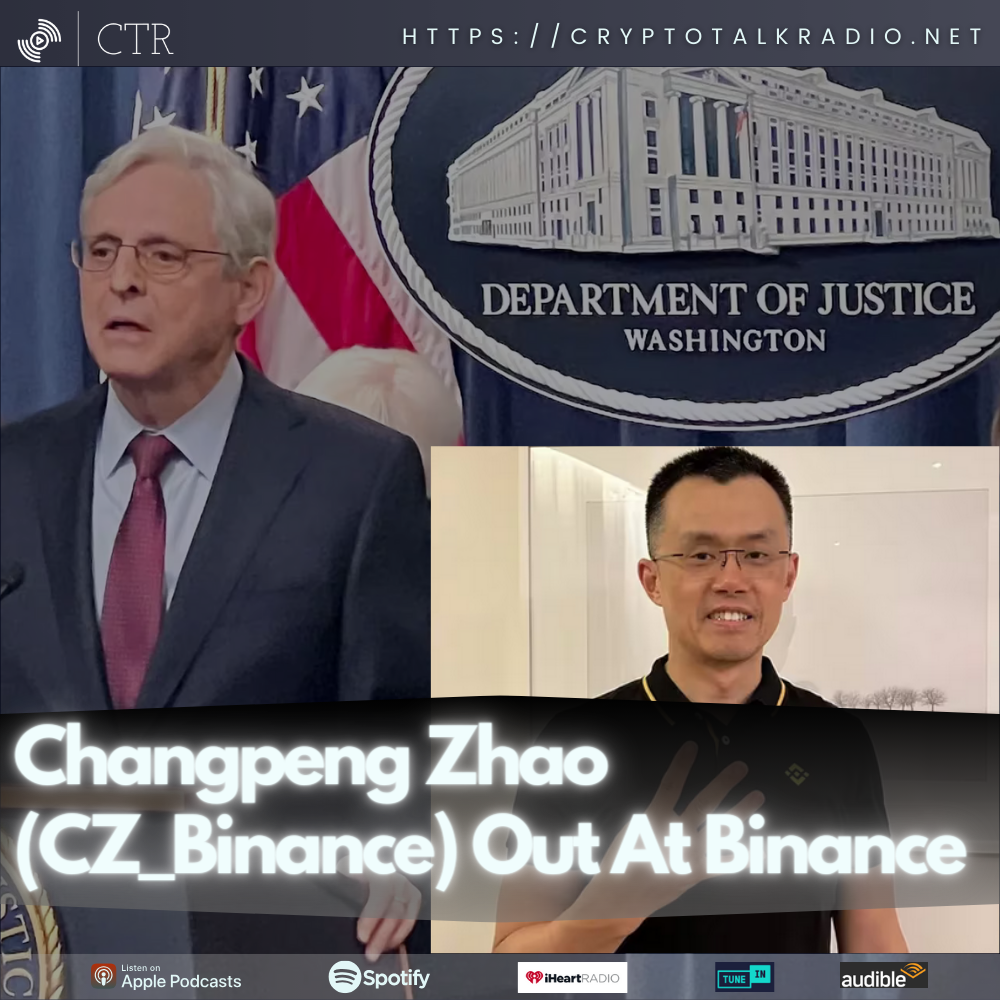Episode Transcript
[00:00:00] Speaker A: Out of cycle update do Rugpool, aka do Kwan, found guilty cryptotalk FM. My name is Lyster, I'm your host, New York juries. This is the state of New York in the United States specifically, but it was spearheaded largely by the SEC finds that man guilty.
I want to talk about the guilt, right? Because there's a lot of things said, and if you were in the terra Luna ecosystem, you're going to agree with some of the shit that was said. And I'm sorry because I laughed when I read some of this business. But this is around USTC, the stablecoin that depegged, that caused this fiasco. The stablecoin was presented as, no, this is going to heal itself. Itll stay stable, the algorithm works, and everythings perfect. However, there was a post way back on social media, and it made some allegations about what was going on when the thing first started to crack. The allegation was basically that Do Kwon do Rugpol had contracted with someone, a big money player, in exchange for some bitcoin, to buy some of something at a steep discount. And allegedly, this organization was able to purchase it at even greater discount. And then essentially arbitrage did, which from all intents and purposes, is what triggered the DPEG. Now, I didn't see any evidence. I'm saying this is what was stated in a post on social media way back when in the court cases, they were talking about this business. What was stated is this. You basically caused this because you worked with this. In this case, it's called jump trading.
[00:01:35] Speaker B: You made a deal with them because.
[00:01:37] Speaker A: You saw it was about to de peg. And then when it initially depends, you made a deal for them to purchase.
[00:01:42] Speaker B: A whole bunch of stuff off the.
[00:01:44] Speaker A: Books, effectively to inflate its value and then bring it back to its peg, a fresh infusion of funds. This seems to correlate to that post that was sent around social media that was called Fud, where the person seemed to have inside knowledge about the deal. Essentially, if jump trading, they didn't call.
[00:02:01] Speaker B: It jump trading by name, they just.
[00:02:02] Speaker A: Said that a big money player, but.
[00:02:05] Speaker B: A jump trading was going to be injecting a large infusion of funds. This is why I refer to the man as Doe rug pool, because he made this deal on his own. He did it off the side, and he might have had the best of intentions, but the point is, the investors didn't know what was going on. The investors had no say in what was happening to their funds, and it caused a sentiment, a sentiment loss, but also a financial damage to these people.
[00:02:29] Speaker A: So I refer to him as Doe Rugpole, because he was ultimately responsible for what happened by his decision. Now, people will say, yeah, but it was going to d peg regardless, but why?
Here's what was said in the case, and this is the part that I didn't know. Terraform labs and dohrug pool swear. No. If you are a reasonable investor, you knew that algorithmic stablecoins work all good. And it doesn't work by magic. I mean, it works by people minting and burning. Okay, let's take that on face that that's the way that it was supposed to work. What he's describing, how is that any different from hex? How is that any different from Zen crypto? How is that any different? Magic, Internet money, how is that any different from all these other tokens that people swear are scams where it's just supposed to, as long as people keep acting, keep acting, keep acting, everything's fine. And the court case, they were trying to say, well, wait a minute, you're saying that you essentially needed more infusion of money on a constant basis to keep this thing going. Now, here's where Leister here gives his stance, because if that's true, and I can't say it is, but if that's true, you essentially have what? You have a pyramid scheme. A pyramid scheme requires all the way down, like mlms. It requires money constantly. You have to keep adding levels and levels and levels to keep the damn thing going. So if it's true that the whole USTC was going to crash and burn, if you lost those institutional investors, if that's true, that means it was a house of cards, it was going to fail at some point, anytime, which is why I don't like algorithmic stable coins, because the vast majority of them have that same stance, because they're not doing it the right way, which is to simply say we're going to have reserves of the United States dollar, or whichever fiat it's pegged to in some bank that we work with, and make sure we have a one to one correlation, and we're not just using magic Internet money methodology to calculate the price or value of a given cryptocurrency that may lose its value at some point when this institutional jump trading, whoever decides to pull out and ditch you, because that's.
[00:04:35] Speaker B: Essentially what killed the Celsius of the world and all these other ones.
[00:04:39] Speaker A: So if that's true, and perhaps in.
[00:04:42] Speaker B: This case, the civil case, they're accepting that as true.
[00:04:46] Speaker A: If that's true. Okay, tell me why I should not refer to him as Doe rug pull. Because that's exactly what it is. Because his action was based on, you know what? I need this money to keep flowing. I need the money to keep flowing. I need the money to keep flowing. And when you say a reasonable investor should know that, hey, this is how it's supposed to work, I guarantee you, most reasonable investors outside the crypto bubble, they would expect that there should be volume, they would expect there should be transactional activity. They wouldn't expect that it's basically going insolvent when you don't have rich people constantly dumping in the damn thing. So I don't buy that counterargument. You might. It's up to you. I am saying, in my opinion, this was always a house of cards. It was doomed to fail. And that means it's going to be next to impossible, in my opinion, to recover. Luna, classic USTC. Because think of what it's saying. You've already, you have a damaged project. Damaged, arguably, irreparably. How are you going to be able to recover it if you couldn't do it up front and you've already damaged sentiment because it's so far down, those people have to basically say, you'd have to have a philanthropist to be able to solve the thing, in my opinion. So don't come at me. But I am, I am surprised a little bit and not a little bit, because again, that post on social media seemed to already expose what was happening, so I already knew what was told. And then when this correlated. Okay, now it all makes sense why this thing went so bad and why it struggles to get back up to square one. So that's it. Terra, Luna, classic USTC. We have a little bit more answers now about this business, and hopefully others will be just as skeptical about algorithmic stablecoins versus me here. Feel free to leave me a comment or leave me a post on cryptotalk fm in the contact form.
[00:06:30] Speaker B: Let me know.
[00:06:30] Speaker A: Hit me up.
[00:06:31] Speaker B: I want to smoke.


